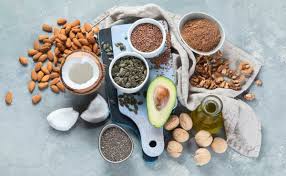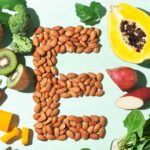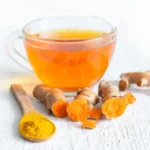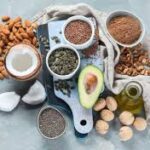As more people adopt vegetarian and vegan lifestyles, the search for high-quality protein sources becomes crucial. The best vegetarian protein sources include options like tofu and legumes. Whether you’re following a plant-based diet or looking to add more protein to your meals, incorporating the right sources of essential to meet your protein needs. Vegan protein sources are crucial for meeting your dietary requirements.
Why Protein is Important in a Vegetarian Diet
Protein is crucial for overall health and well-being, playing a vital role in building and repairing tissues, muscles, and organs. In a vegetarian or vegan diet, ensuring you get enough protein is important as it provides essential amino acids that the body cannot produce on its own. Vegan protein sources are essential to achieve this balance.
Tofu
Benefits of Tofu as a vegetarian Protein Source
Tofu, made from soybean curds, is a popular plant-based vegetarian protein source packed with nutrients. It is an excellent source of protein, providing around 10 grams of protein per half-cup serving. Tofu is also a complete protein, containing all nine essential amino acids necessary for optimal health.
Recipes Incorporating Tofu
Tofu’s versatility makes it a favorite ingredient in vegetarian and vegan cooking. You can enjoy it in stir-fries, salads, smoothies, or even as a substitute for eggs and dairy in baking recipes. Try marinating and grilling tofu or adding it to a curry for a protein-rich and flavorful dish. Tofu offers up much protein, making it a staple for protein-rich diets.
Lentils
Nutritional Value of Lentils
Lentils are nutritional powerhouses, rich in protein, fiber, and various essential nutrients.Lentils are also a great source of iron, making them a must-add to a balanced diet.
Delicious Lentil Dishes to Try
From hearty lentil soups to protein-packed salads, there are numerous delicious ways to enjoy lentils. Try making lentil dahl, lentil burgers, or adding cooked lentils to your favorite pasta dishes for a protein boost. Experiment with different spices and herbs to enhance the flavors of lentil-based meals. Lentils, known to be high in protein, can be made even more delicious with the right seasoning.
Quinoa
Quinoa, a pseudograin, is a complete protein source, containing all essential amino acids. It provides around 9 grams of protein per cup, making it an excellent choice for fulfilling your dietary needs. A single cup provides around 8 grams of protein, making it a valuable addition to a vegetarian or vegan diet. This nutritional content makes it one of the top vegan protein sources. Its protein content helps in meeting your protein needs while offering other essential nutrients.
Quinoa and Its Protein Content
Quinoa stands out for its high protein content, making it a favored choice for plant-based diets. With approximately 8 grams of protein per cup, quinoa helps meet your protein intake effectively. It is not only a good source of protein but also rich in fiber, making it a wholesome option.
Creative Ways to Include Quinoa in Your Meals
Adding quinoa to your meals can be versatile and delicious. Incorporate it into salads, soups, or use it as a substitute for rice. Quinoa can also be used in baking for protein-rich muffins or as a base for protein bowls with colorful veggies and flavorful dressings. Quinoa, which is high in protein, also works well as a breading for baked meats or vegetables.
Peas
Peas are not only tasty but also packed with protein and nutrients. They offer around 8 grams of protein per cooked cup, making them a great addition to any diet focused on plant-based sources of protein. Peas provide a nutrient-dense option for meeting your protein requirements.
Peas: A Nutrient-Dense Protein Source
Peas are a powerhouse of plant-based protein, offering essential amino acids crucial for muscle repair and growth. With a protein content of around 8 grams per cup, peas provide not just protein but also fiber, vitamins, and minerals for overall health and well-being.
Pea Protein Powder: An Alternative for Supplementing Protein
Pea protein powder has gained popularity as a convenient way to supplement protein intake. It is a vegan-friendly option derived from yellow peas, providing a concentrated source of protein. Pea protein powder can be added to smoothies, baked goods, or shakes for an extra protein boost.
Soybeans
Soybeans are a staple in vegetarian and vegan diets for their high protein content and versatility. With approximately 28 grams of protein per cup, soybeans are an essential source of plant-based protein. They offer a range of health benefits alongside meeting your protein needs.
Soybeans: An Essential Vegetarian Protein Sources
Soybeans are considered a complete protein, containing all nine essential amino acids required by the body. This makes them a valuable protein source for vegetarians and vegans. Incorporating soybeans into your meals provides not only protein but also antioxidants and fiber for a balanced diet.
Fermented Soy Products for Added Protein Benefits
Fermented soy products like tempeh and miso offer enhanced protein benefits due to the fermentation process. These products are easier to digest and may provide additional nutrients. Including fermented soy products in your diet can offer a diverse range of proteins while supporting gut health and overall well-being.
Hemp Seeds
Hemp seeds are a nutritional powerhouse, offering a wide array of health benefits. Packed with protein, essential fatty acids, and various vitamins and minerals, hemp seeds are a great addition to any diet. Their protein content makes them an excellent source of plant-based protein for vegetarians and vegans.
Health Benefits of Hemp Seeds
In addition to their protein content, hemp seeds are rich in omega-3 and omega-6 fatty acids, which are essential for heart health and reducing inflammation. They also contain high amounts of fiber, aiding digestion and promoting a healthy gut. Incorporating hemp seeds into your diet can help meet your protein needs and boost overall nutrition.
Edamame
Edamame, young soybeans, are a versatile and protein-rich snack that can satisfy hunger while providing essential nutrients. With approximately 17 grams of protein per cooked cup, edamame is a great option for boosting protein intake in a plant-based diet. It’s not only delicious but also a convenient and healthy choice for snacking.
Edamame: A Versatile Protein-Rich Snack
Edamame can be enjoyed on its own as a snack, added to salads, stir-fries, or blended into dips for a protein-packed boost. This green legume not only offers a good amount of protein but also delivers fiber, iron, and calcium, making it a well-rounded choice for vegetarians and vegans.
Greek Yogurt
Greek yogurt is a creamy and thick dairy option that is prized for its high protein content and probiotic benefits. With around 17 grams of protein per 6-ounce serving, Greek yogurt is an excellent source of protein for vegetarians. Its rich, tangy flavor makes it a versatile ingredient in various dishes.
Greek Yogurt: A Protein-Packed Dairy Option
Aside from being a great source of protein, Greek yogurt contains probiotics that support gut health and digestion. It also offers calcium, which is essential for bone health. Whether enjoyed on its own, in smoothies, or as a creamy topping, Greek yogurt is a delicious and nutritious way to add protein to your diet.
Mixed Nut Varieties
Nuts and seeds are not only delicious but also excellent sources of plant-based protein, healthy fats, and various nutrients. Mixed nut varieties, such as almonds, walnuts, and cashews, offer a crunchy and satisfying snack option rich in protein. Including a variety of nuts in your diet can provide a balanced mix of nutrients.
Nuts and Seeds: Protein-Rich Snacking Options
Snacking on mixed nuts can help curb hunger while supplying essential nutrients like protein, fiber, and antioxidants. Nuts are also known for their heart-healthy fats and can contribute to lowering cholesterol levels. Additionally, incorporating nuts into trail mix adds dried fruits and seeds for a balanced and protein-rich snacking choice.
Trail Mix: A Balanced Protein Snack
Trail mix combines the protein power of nuts and seeds with the natural sweetness of dried fruits. This balanced snack option offers a mix of healthy fats, fiber, and protein, ideal for sustained energy between meals. With various combinations available, trail mix is a convenient and tasty way to add protein to your snacking routine.




















